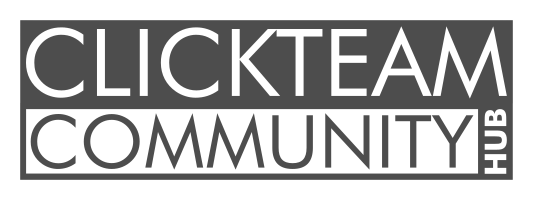It´s seems hard to implement for someone who doesn't usually work by this way, but it´s basically as simple as I explained you step by step...
If you need more help, let me know!
Posts by iOSC
Welcome to our brand new Clickteam Community Hub! We hope you will enjoy using the new features, which we will be further expanding in the coming months.
A few features including Passport are unavailable initially whilst we monitor stability of the new platform, we hope to bring these online very soon. Small issues will crop up following the import from our old system, including some message formatting, translation accuracy and other things.
Thank you for your patience whilst we've worked on this and we look forward to more exciting community developments soon!
Clickteam.
A few features including Passport are unavailable initially whilst we monitor stability of the new platform, we hope to bring these online very soon. Small issues will crop up following the import from our old system, including some message formatting, translation accuracy and other things.
Thank you for your patience whilst we've worked on this and we look forward to more exciting community developments soon!
Clickteam.


